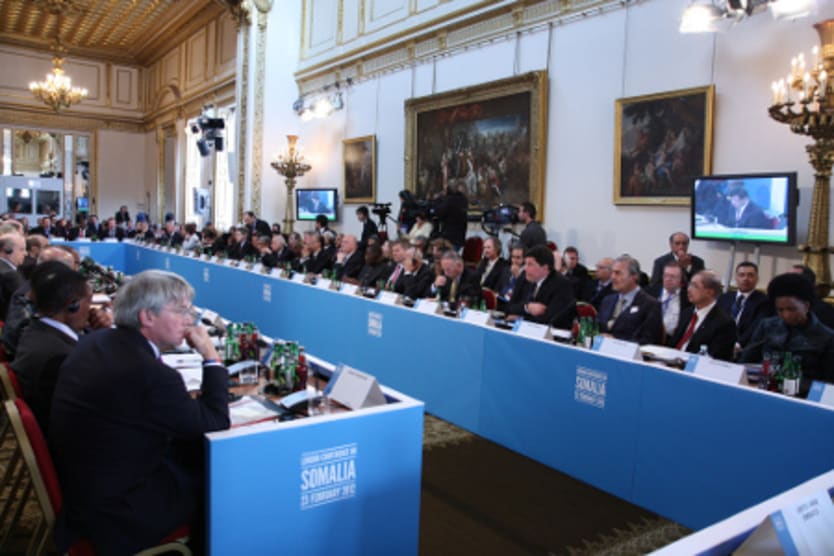
The international community needs to develop a long-term strategy to support Somalia’s recovery, even as it improves humanitarian aid coordination and delivery in the crisis-torn country.
Key donors and international organizations agreed to these conclusions, among others, at the end of a humanitarian meeting held on the sidelines of the London Conference on Somalia in the United Kingdom.
The conclusions appear to answer some nongovernmental organizations’ demands for less “politicization” of aid to Somalia and a coherent strategy for the country’s development. Whether the meeting’s conclusions satisfy the NGOs’ demands, however, remains to be seen.
>> Donors urged to end ‘politicization’ of aid in Somalia
In a statement released at the end of the humanitarian event, which was hosted by U.K. Secretary of State for International Development Andrew Mitchell, participants agreed to deepen ongoing U.N. efforts to provide “timely and sustained” humanitarian assistance that support the recovery and development of Somalia.
Donors pledged millions to Somalia, although most were for security and for the new international stability fund. But the fund, according to BBC Somalia analyst Mary Harper, has been established to increase foreign support to the more stable northern areas of Puntland, Galmudug and the self-declared republic of Somaliland.
Pledges for humanitarian assistance came from the United States, Germany and the United Kingdom. The United States announced a new pledge for Horn of Africa countries worth $64 million. Germany will make available €6 million ($8 million) — which it will course through aid organizations — for the internally displaced in Mogadishu, and refugees in the camps of Dolo Ado in Ethiopia and Dadaab in Kenya. The U.K. Department for International Development, meanwhile, will provide $80 million over three years for refugees in both camps.
In addition, the statement highlighted the need to develop Somalia’s resilience to future shocks. To this end, participants urged the United Nations to lead the development of a strategy towards mitigating droughts and other emergencies in Somalia.
The meeting also tackled the aid response’s compliance with international accords, such as the International Humanitarian Law. Participants said they agreed to enhance reporting and monitoring systems for violations of IHL in the country. They also called on parties involved in the conflict to ensure all measures necessary to prevent civilian casualties and ensure military action do not hamper humanitarian access.
Jenny Lei Ravelo contributed to this report.
Read more development aid news online, and subscribe to The Development Newswire to receive top international development headlines from the world’s leading donors, news sources and opinion leaders — emailed to you FREE every business day.








